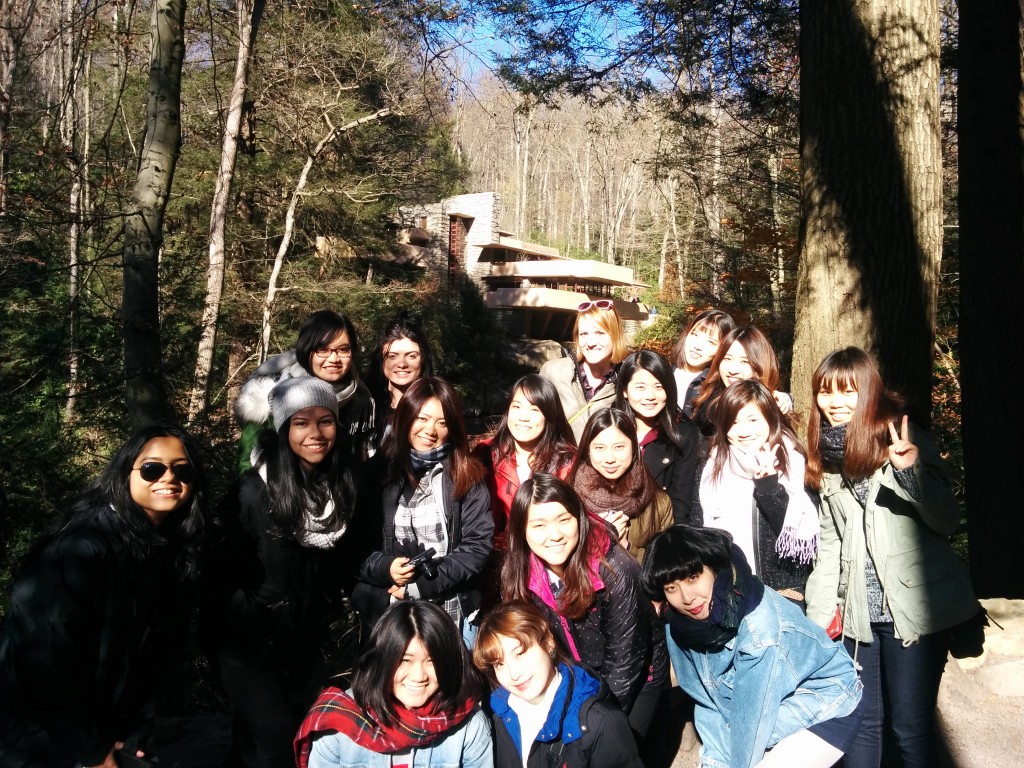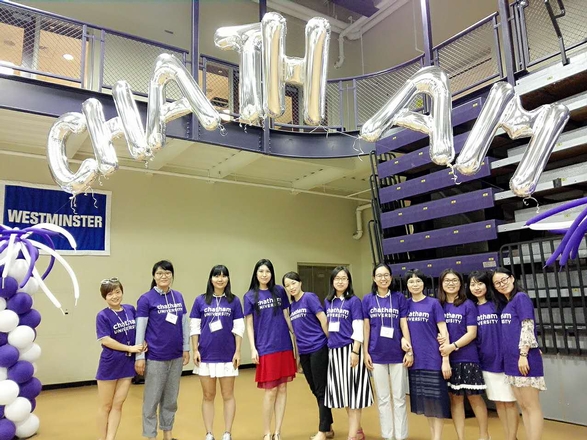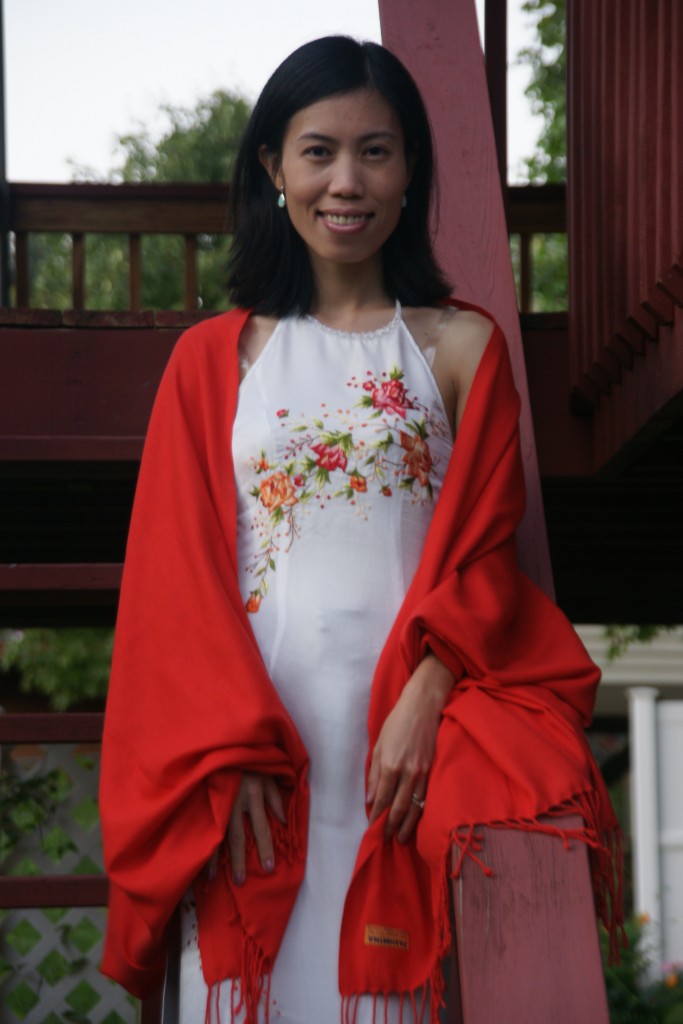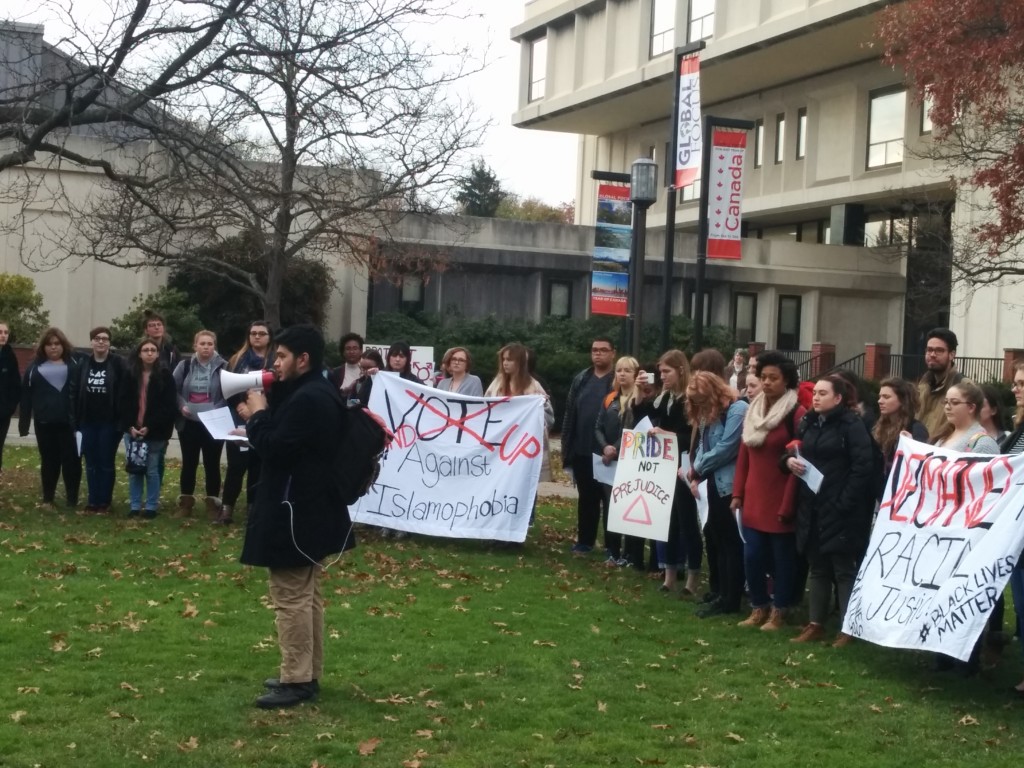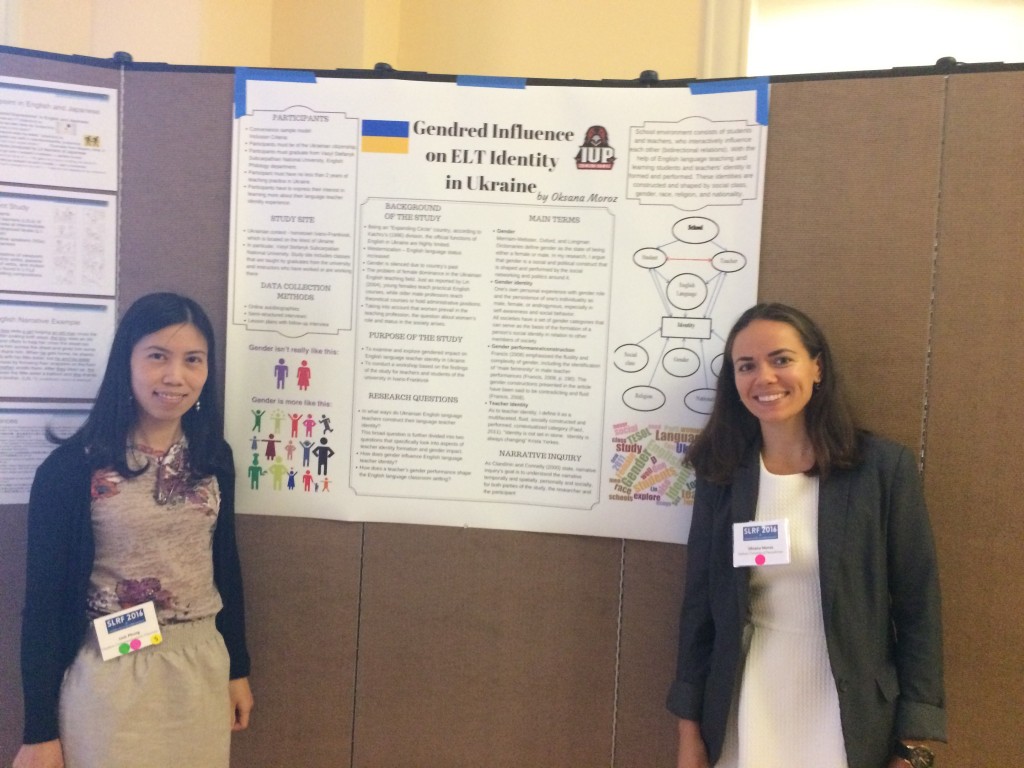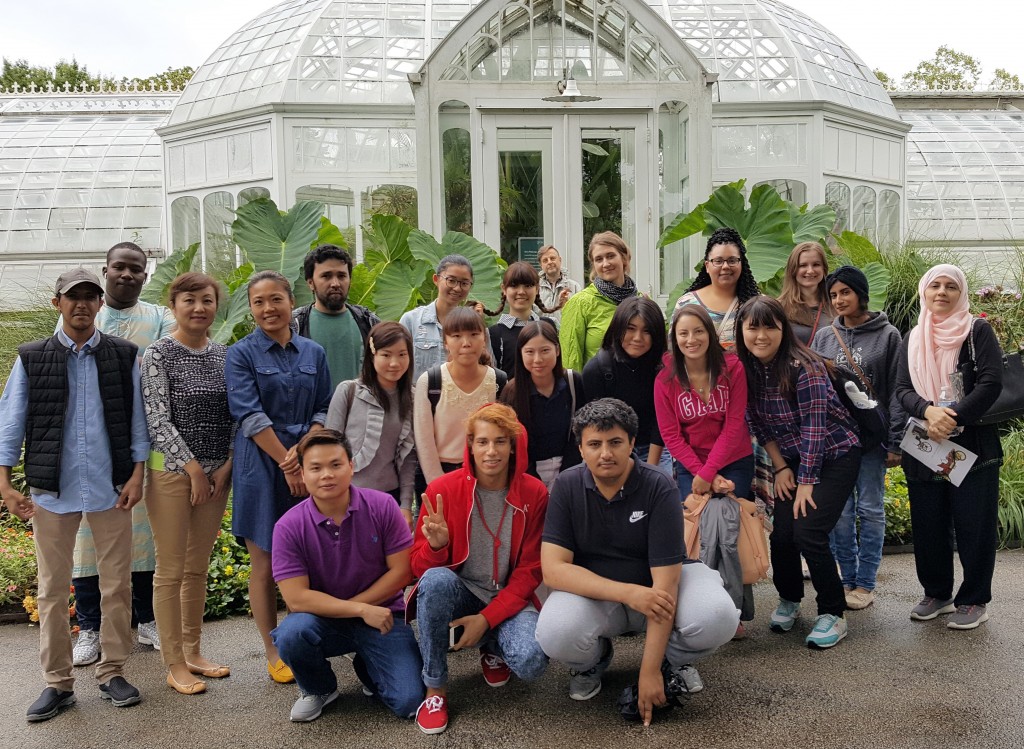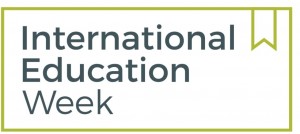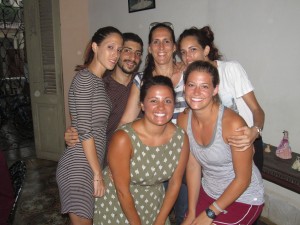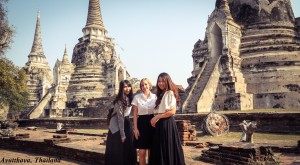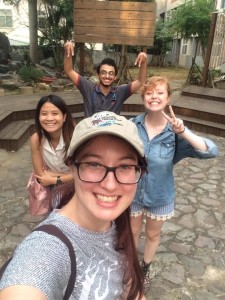By Kate Emory, International Student Services Coordinator
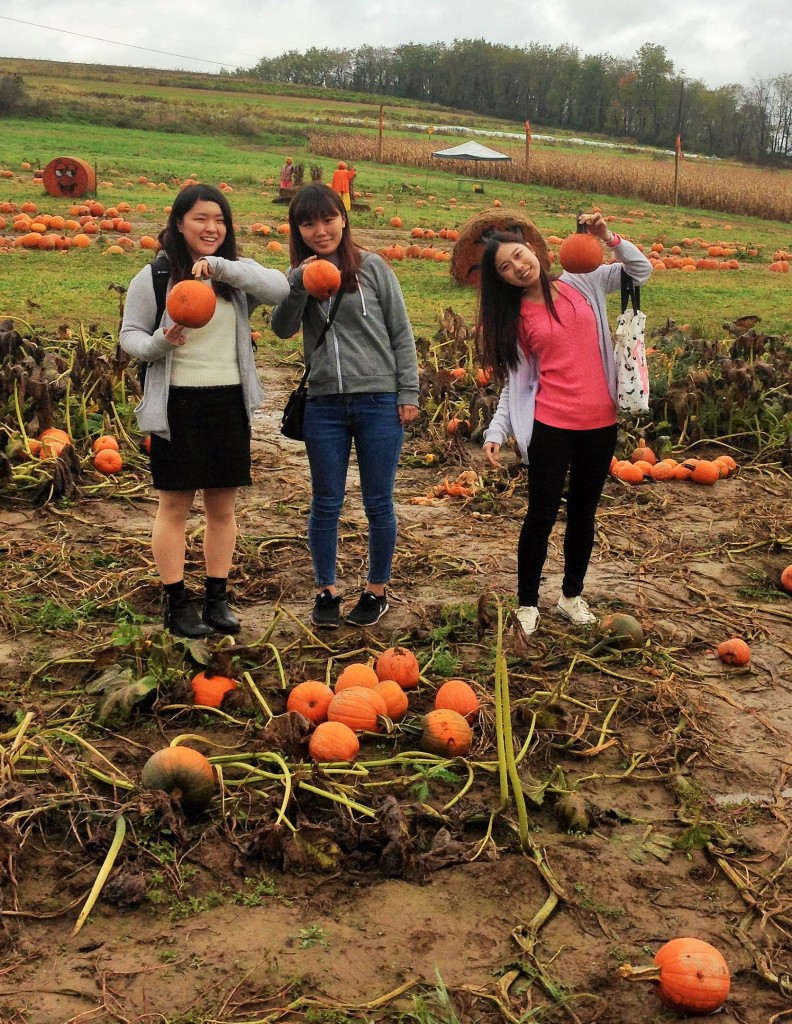
Throughout the semester there are many opportunities for students to interact with American students and culture: on campus, in the local community, and nationally as they travel. Over the course of the Fall 2016 semester, Chatham students have participated in athletic activities, volunteered at local community organizations, and traveled to Chicago, Seattle, New York, and Washington DC.
The Office of International Affairs has organized local events, such as a church tour the Presbyterian Church in East Liberty and the Macedonian Church of Pittsburgh in the Hill District, and a day trip to Fallingwater and Ohio Pyle State Park. Sharla Yates, an instructor in the English Language Program, also organized a visit to Schramm’s Farm in Harrison City PA for the students in the US Culture class.
At Schramm’s Farm students were able to experience classic “fall farm festival” atmosphere, including walking through a pumpkin patch, drinking fresh apple cider, exploring a corn maze, and taking a hay ride. Students were able to pick a pumpkin, which they then used to carve Jack O’ Lanterns in the US Culture class. Students also participated in the Chatham Harvest Fun Fest on the quad and experienced American autumn activities with their classmates and roommates.
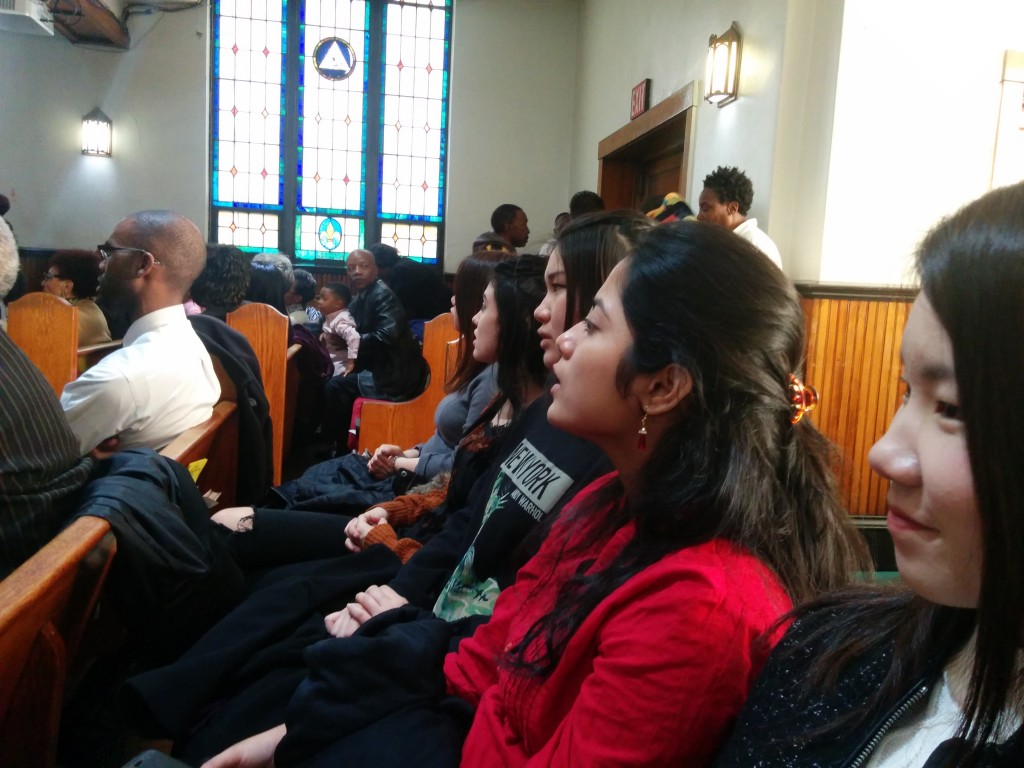
The church tour of East Liberty’s Presbyterian Church allowed students to climb the steeple to the top and learn about the buildings interesting history. Later in the semester students were invited to the Macedonian Church of Pittsburgh to experience a Baptist choir and learn about the African American experience in Pittsburgh.
Fallingwater, a national historic landmark, is considered the crowning achievement of architect Frank Lloyd Wright. We toured the house and learned about the family who lived there, as well as about Frank Lloyd Wright and his work. After the tour, we visited Ohio Pyle State Park, which, despite the name, is still in Pennsylvania. There students explored the small town, ate American BBQ, and began a hike along the Youghiogheny River. Some students expressed relief to experience a “refreshing” break from the rigors of the classroom and explore the state park.
Students enjoyed a traditional Thanksgiving Dinner on Wednesday November 16th at with hundreds of Chatham’s students, faculty, and staff. There they feasted on turkey, mashed potatoes, yams, green beans, stuffing, and cranberry sauce. During the Thanksgiving holiday, many students will travel on their own to experience other American cities: Washington DC, New York, Chicago, while others will be visiting family or going to their roommate’s home.
Students are encouraged to let OIA know of their interests to assist us in planning these events and trips. Pittsburgh has much to offer students, and we look forward to introducing students to interesting facets of American and local culture.
Contact: internationalaffairs@chatham.edu

